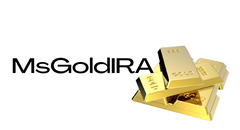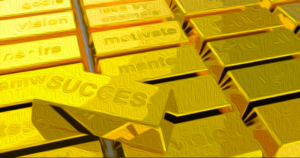
Several investment firms, including Vanguard, have decided to block customers from trading spot bitcoin exchange-traded funds (ETFs). According to the firm, "Our perspective is that these products do not align with our focus on asset classes such as equities, bonds, and cash." As a result, some dissatisfied customers have closed their Vanguard accounts and moved their funds to other platforms that offer spot bitcoin ETFs.
Vanguard Has No Plans to Offer Spot Bitcoin ETF Trading
The arrival of spot bitcoin exchange-traded funds (ETFs) in the U.S. financial markets on Thursday brought much excitement after years of anticipation. The Securities and Exchange Commission (SEC) approved 11 spot bitcoin ETFs on Wednesday.
However, shortly after the market opened, it became evident that some financial institutions, including Vanguard, were not offering spot bitcoin ETFs. A Vanguard spokeswoman confirmed to CNBC that the company has no plans to launch its own bitcoin ETF or list funds from other issuers. The spokeswoman stated:
While we continuously evaluate our brokerage offerings and assess new product entries, spot bitcoin ETFs will not be available for purchase on the Vanguard platform. We also have no plans to offer Vanguard bitcoin ETFs or other crypto-related products.
Furthermore, the Vanguard spokesperson added, "Our perspective is that these products do not align with our focus on asset classes such as equities, bonds, and cash, which Vanguard views as the fundamental building blocks of a well-balanced, long-term investment portfolio."
As a result of Vanguard's decision, several bitcoin enthusiasts frustrated by the lack of spot bitcoin ETFs announced that they had closed their Vanguard accounts and transferred their funds to platforms like Fidelity, which provide access to these newly approved products. Additionally, some users reported that Vanguard now only allows them to sell their Grayscale Bitcoin Trust (GBTC) holdings, despite previously allowing them to purchase them.
Other investment banks, including UBS, Morgan Stanley, Bank of America's Merrill Lynch, Citi, and Edward Jones, also reportedly refrained from offering spot bitcoin ETFs to their customers on the first day. While some have plans to offer access to these products in the future, potentially with certain conditions, others have not yet indicated their stance.
What are your thoughts on Vanguard's decision to prevent customers from trading the recently approved spot bitcoin ETFs? Let us know in the comments section below.
Frequently Asked Questions
What is a Precious Metal IRA and How Can You Benefit From It?
Precious metals are an excellent investment for retirement accounts. They have held their value since biblical times. Investing in precious metals such as gold, silver, and platinum is also a great way to diversify your portfolio and protect against inflation.
Many countries also permit citizens to store money in foreign currencies. You can buy Canadian gold bars and keep them at home. You can also sell these gold bars for Canadian dollar when you visit family.
This is a quick and easy way of investing in precious metals. It is particularly useful for those who live outside North America.
What is the most valuable precious metal?
High returns on capital are possible with gold investments. It can also protect against inflation and other risks. The price of gold tends to rise as people become concerned about inflation.
It's a good idea to purchase gold futures. These contracts ensure that you receive a set amount of gold at a fixed rate.
However, gold futures aren't suitable for everyone. Some people prefer to own physical gold instead.
They can trade their precious metals with others. They can also sell their gold whenever they wish.
Some people would rather not pay tax on their gold. To do that, they buy gold directly from the government.
This will require you to make multiple trips to your local postal office. You must first convert any existing gold into coins or bars.
Next, you will need to stamp the coins or bars. Finally, send the coins or bars to the US Mint. They will then melt down the bars and coins to create new coins.
These new coins, bars, and bars have the original stamps stamped onto them. That means that they're legal tender.
You won't need to pay taxes if gold is purchased directly from the US Mint.
What precious metal would your investment preference be?
How much should precious metals make up your portfolio?
Physical gold is the best investment to protect yourself against inflation. Because precious metals are a long-term investment, you can not only buy in to the current value but also the future potential of these assets. As prices rise, so does your investment's value.
Tax benefits will accrue if your investments are kept for at most five years. And if you sell them after this period, you will have to pay capital gains taxes. Learn more about how you can buy gold coins on our website.
How does an IRA for gold and/or silver work?
An IRA for gold and/or silver allows you to invest without tax in precious metals such as silver and gold. This makes them an attractive investment for people who want to diversify their portfolios.
If you're over 59 1/2, you don't have to pay income taxes on interest earned through these accounts. On any appreciation in value of the account, you don't have to pay capital gain tax. There are limits on the amount of money that you can place into this account. The minimum amount you can put into this account is $10,000. Under 59 1/2 years old, you can't make any investments. The maximum annual contribution allowed is $5,500
If you die before retirement, your beneficiaries may receive less than the full amount in your account. After all expenses have been paid, your estate must contain enough assets to cover any remaining balance in your account.
Some banks offer a silver and gold IRA option. Others require you open a regular broker account, through which shares or certificates can be purchased.
What are the different types of IRA?
There are three main types of IRAs. There are three types of IRAs: Roth, Traditional, and SEP. Each has its own advantages and disadvantages. Each type will be covered in detail below.
Traditional Individual Retirement Accounts (IRA)
Traditional IRAs allow you to make pretax contributions to an account that allows you to defer taxes while still earning interest. You can withdraw money from the account tax-free after you retire.
Roth IRA
Roth IRAs allow after-tax dollars to go into an account. Earnings are exempt from tax. When you withdraw funds from the account for retirement purposes, withdrawals are also exempted from tax.
SEP IRA
This is similar with a Roth IRA, but employees are required to make additional contributions. These extra contributions are subject to income tax but any earnings will grow tax-deferred again. The entire amount can be converted to a Roth IRA if you are leaving the company.
Can I have physical possession of gold within my IRA?
Many people want to know if gold can be physically owned in an IRA. It is a valid question, as there is no legal way to possess gold in an IRA account.
However, if you examine the law carefully, you will see that there are no restrictions on gold ownership in an IRA.
The problem is that most people don't realize how much money they could save by putting their gold in an IRA instead of keeping it in their own homes.
It's very easy to dispose of gold coins, but much harder to make an IRA. If you decide to keep your precious metal in your own home you will have to pay two taxes. You will pay taxes twice: once to the IRS and one for the state in which you live.
You can also lose your gold and have to pay twice the taxes. So why would you choose to keep it in your home?
Some might argue that gold should be safe at home. You can protect your gold from theft by storing it somewhere more secure.
If you're planning on visiting frequently, it is best to keep your gold safe at home. Thieves can easily steal your gold if you don't keep it safe.
You can store your gold in an insurance vault. This will ensure that your gold is protected against fire, flood, earthquake and robbery.
You won't be responsible for paying any property tax if you store your gold in a vault. You will have to pay income taxes on any gains from the sale of your gold.
A IRA can be a great option if you want to avoid paying tax on your gold. You won't be subject to income tax if you earn interest from your gold with an IRA.
Capital gains tax is not a requirement for gold investments. You can cash out your entire investment anytime you wish.
Because IRAs have federal regulation, it won't be difficult to transfer your gold to another bank if there is a move.
The bottom line is: You can own gold in an IRA. The only thing holding you back is your fear of having it stolen.
What Precious Metals Can You Invest in for Retirement?
Understanding what you have now saved and where you are currently saving money is the first step in retirement planning. To find out how much money you have, take a inventory of everything that you own. This should include any savings accounts, stocks, bonds, mutual funds, certificates of deposit (CDs), life insurance policies, annuities, 401(k) plans, real estate investments, and other assets such as precious metals. Then add up all of these items to determine how much you have available for investment.
If you are under 59 1/2 you should consider opening a Roth IRA Account. A Roth IRA is not able to allow contributions to be deducted from your taxable earnings, but a traditional IRA can. However, you will not be able take tax deductions on future earnings.
If you decide that you need more money you'll need another investment account. Start with a regular brokerage account.
Statistics
- Depending on your financial situation, most experts recommend you invest no more than 5% to 10% of your retirement funds in precious metals. (forbes.com)
- SEP-IRA”Simplified employee pension” For self-employed people like independent contractors, freelancers, and small-business ownersSame tax rules as traditional IRASEP IRA contributions in 2022 are limited to 25% of compensation or $66,000, whichever is less4. (sltrib.com)
- The maximum yearly contribution to an individual's IRAs is currently $6,000 ($7,000 for those 50 years or older), or 100% of earned income, whichever is less. (monex.com)
- To qualify as IRA allowable precious metals and be accepted by STRATA, the following minimum fineness requirements must be met: Gold must be 99.5% pure, silver must be 99.9% pure, and platinum and palladium must both be 99.95% pure. (stratatrust.com)
External Links
forbes.com
- Gold IRA: Add some sparkle to your retirement nest egg
- Understanding China's Evergrande Crisis – Forbes Advisor
kitco.com
wsj.com
takemetothesite.com
How To
Precious Metals Approved by the IRA
IRA-approved metals are great investments. There are many options available to diversify and protect your portfolio from gold bars through silver coins.
Precious metal investments products can be purchased in two forms. Bars and coins, which are physical bullion products, can be considered tangible assets as they are in tangible form. On the other hand, exchange-traded funds (ETFs) are financial instruments that track the price movements of an underlying asset, such as gold. ETFs can be purchased directly from the company issuing them, and trade in the same way as stocks on stock exchanges.
There are many precious metals to choose from. Gold and silver are often used for jewelry making and decorating, while platinum and palladium are more commonly associated with luxury items. Palladium tends to hold its value better than platinum, which makes it ideal for industrial uses. Although silver is useful for industrial purposes it is preferred for decorative uses.
Due to the expense of mining and refining natural materials, physical bullion is more expensive. However, they are generally safer than paper currencies and provide buyers with greater security. Consumers may lose faith in the currency and seek out alternatives if the U.S. dollar falls in purchasing power. In contrast, physical bullion products do not rely on trust between countries or companies. They are instead backed by central banks and governments, which gives customers security.
According to supply and demand, gold prices can fluctuate. In other words, demand drives the price up. However, supply is greater than demand and prices fall. This dynamic creates opportunities for investors to profit from fluctuations in the price of gold. These fluctuations are good for investors who have physical bullion products as they get a better return on their investment.
Precious metals, unlike other investments, are immune to economic recessions or changes in interest rates. As long as demand remains strong, the price of gold will continue to rise. Precious metals are safe havens in times of uncertainty because of this.
The most popular precious metals include:
- Gold – Gold is the oldest precious metal. Gold is also called “yellow-metal”. While gold is a well-known element, it is very rare to find underground. Most of the world’s remaining gold reserves are found in South Africa.
- Silver – Silver is second most valuable precious metal, after gold. Silver is mined from the earth's natural resources. Silver, unlike gold, is often extracted from ore instead of rock formations. Silver is widely used in industry and commerce because of its durability, conductivity, malleability, and resistance to tarnishing. The United States accounts for more than 98% global silver production.
- Platinum – Platinum is the third most valuable precious metal. It can be used to make high-end medical equipment, fuel cells, and catalytic converters. It is used in dentistry for dental crowns, fillings and bridges.
- Palladium- Palladium, the fourth most precious precious metal, is Palladium. Due to its strength and stability, it is quickly gaining popularity among manufacturers. Palladium is also used for electronics, aerospace, military technology and automobiles.
- Rhodium- Rhodium, the fifth most precious precious metal, is also known as Rhodium. Although rhodium is extremely rare, it is highly sought after because of its use in automobile catalysts.
- Ruthenium: Ruthenium is sixth most valuable precious metallic. Although palladium is scarce and platinum is rare, there are plenty of ruthenium. It is used in steelmaking, chemical manufacturing, and engine design.
- Iridium: Iridium (the seventh most valuable precious metallic) is the seventh. Iridium has a significant role in satellite technology. It is used for the construction of satellites with orbital capabilities that transmit television signals and other communications.
- Osmium: Osmium is eighth most valuable precious metallic. Because of its extreme temperature resistance, Osmium is often used in nuclear reactors. Osmium can also be used in jewelry and medicine as well as cutting tools.
- Rhenium – Rhenium has been ranked as the ninth most valuable precious metallic. Rhenium can also be used in rocketry, oil refinement, and semiconductor manufacturing.
- Iodine – Iodine is the tenth-most valuable precious metal. Iodine's uses include radiography, photography and pharmaceuticals.
—————————————————————————————————————————————————————————————-
By: Kevin Helms
Title: Vanguard Blocks Customers From Trading SEC-Approved Spot Bitcoin ETFs
Sourced From: news.bitcoin.com/vanguard-blocks-customers-from-trading-sec-approved-spot-bitcoin-etfs/
Published Date: Sat, 13 Jan 2024 04:00:37 +0000












